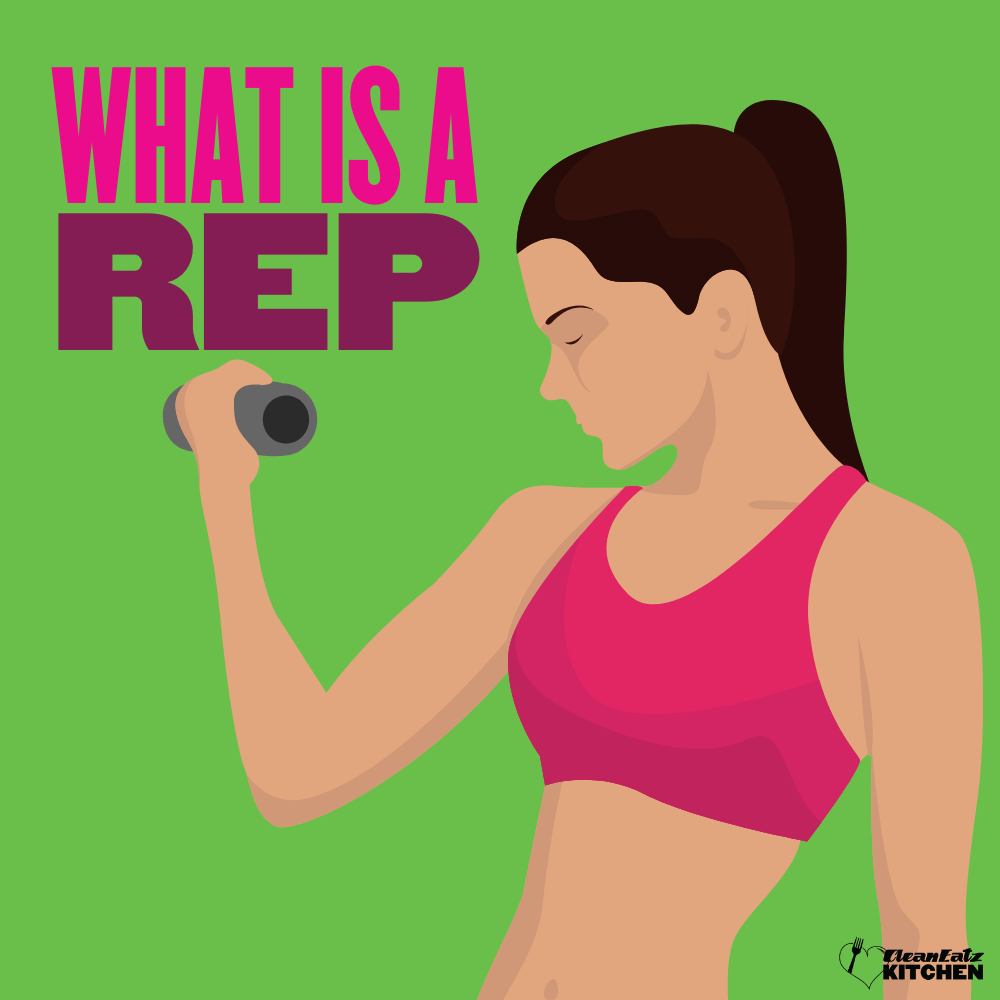
What are Reps Exercise?
Diana Ketchen
Exercises & Fitness
6 minute read
What are reps? Reps are an important part of the exercise, but what exactly are they? A rep, short for repetition, is one complete cycle of an exercise movement. For example, if you are doing a bicep curl with dumbbells, one rep would be curling the weights up to your shoulder and then slowly lowering them back down again.
Most exercises are designed to be completed in a set number of reps, usually 8-12. Once you can complete the prescribed number of reps for an exercise comfortably, you can increase the weight you are using or the number of reps you do in order to keep challenging your muscles and prevent your workout from becoming stale.
Why Do We Use Reps in Exercise?
When trying to tone our muscles or build strength, repetitions are vital because they help us slowly break down and rebuild our muscle fibers. The more reps we do of an exercise, the more our muscles are worked—and the more they grow.
The Benefits of Doing Reps
When it comes to working out, doing reps is often seen as the best way to build muscle. But what are the benefits of doing reps, and how can you make the most of this type of exercise?
First, doing reps helps to increase your muscular endurance. This means that you'll be able to work out for longer periods without getting tired. Additionally, reps help improve cardiovascular health by increasing your heart rate and making your lungs work harder.
Finally, repetitions help to break down muscle fibers, which leads to muscle growth. So, if you're looking for a way to build muscle and improve your overall fitness, doing reps is a great option. Just remember to focus on form and quality over quantity, and you'll see results in no time.
Different Types of Reps
When most people think of working out, they tend to focus on cardiovascular exercises like running or biking. However, strength training is an integral part of any fitness routine. It can help build muscle and improve overall health and can also be customized to target specific areas of the body.
For instance, doing more reps with lighter weights is a great way to tone your arms, while doing fewer reps with heavier weights can help to build bigger muscles in your legs. By varying the number of reps and weights you lift, you can create a workout tailored to your individual needs. As a result, you can achieve your fitness goals more effectively and efficiently.
How To Properly Do a Rep
When it comes to weightlifting, proper form is key to achieving results. A rep (repetition) is one complete lift of a weight from start to finish. The number of reps you do per set depends on your goals; for example, if you're trying to build muscle, you will do fewer reps with heavier weights, whereas if you're trying to increase endurance, you will do more reps with lighter weights.
If you want to make the most of your reps, there are a couple of things you should keep in mind, no matter your goal.
-
First, maintain control of the weight throughout the entire movement.
-
Secondly, focus on using the muscles you're targeting - don't cheat by using momentum or swinging the weights.
-
Finally, don't hold your breath - exhale on the exertion (i.e., when you're lifting the weight) and inhale on the release.
By following these simple tips, you can be sure you're getting the most out of each rep.
Tips for Beginners Who Are Just Starting With Reps
When starting out with reps, it's essential to keep a few things in mind to make the most of your training.
-
It's essential to focus on quality over quantity. It's better to do a few reps with good form than to try and do too many and compromise your technique.
-
It's essential to listen to your body and don't push yourself too hard. When you're just starting out, it's easy to get carried away and try to do too much too soon. But if you really want to make progress, you need to be patient and build up slowly.
-
Don't be afraid to ask for help. For example, if you need help with performing a specific exercise or lifting correctly, there's no shame in asking someone who knows what they're doing.
By following these tips, you'll be well on your way to getting the most out of your reps' training.
If you’re just starting out with reps, it’s important to focus on quality over quantity and listen to your body so that you don’t push yourself too hard too soon.
Reps - Focus on Quality over Quantity
-
Reps are one complete cycle of an exercise movement.
-
Most exercises are designed to be completed in a set number of reps, usually 8-12.
-
Doing reps helps to increase your muscular endurance and cardiovascular health and can lead to muscle growth.
-
You can customize your workout by varying the number of reps and the amount of weight you lift to target specific areas of the body.
-
When doing a rep, maintain control of the weight throughout the entire movement and focus on using the muscles you’re targeting.
Final Thoughts
What are reps? "reps" typically refer to repetitions in the context of exercise and strength training. They are the fundamental building blocks of a workout routine, representing the number of times an exercise is performed in a set. The number of reps, along with the weight or resistance used, plays a crucial role in determining the specific benefits and goals of a fitness regimen. Understanding how to properly incorporate and adjust reps in a workout is essential for achieving desired fitness outcomes, whether it's building muscle, increasing endurance, or improving overall health and wellness.
FAQ
Are higher reps better for weight loss?
While higher reps can help with calorie burning and muscle toning, a balanced workout plan combining different rep ranges, along with a proper diet, is more effective for weight loss.
Can I do too many reps in a set?
It's possible to overexert yourself with excessive reps, leading to muscle fatigue or injury. It's essential to find the right balance that suits your fitness level and goals.
How long should I rest between sets of reps?
Rest periods vary but typically range from 30 seconds to several minutes, depending on the intensity of the exercise and your training objectives.
Can I do reps with bodyweight exercises?
Absolutely. Many bodyweight exercises, like push-ups, squats, and planks, involve reps. You can adjust the number of reps to suit your fitness level.
Related Articles
What Is an Exercise High?
5 minute read
What Are The Benefits of Exercise?
11 minute read
Is Cycling Good for Weight Loss?
6 minute read



